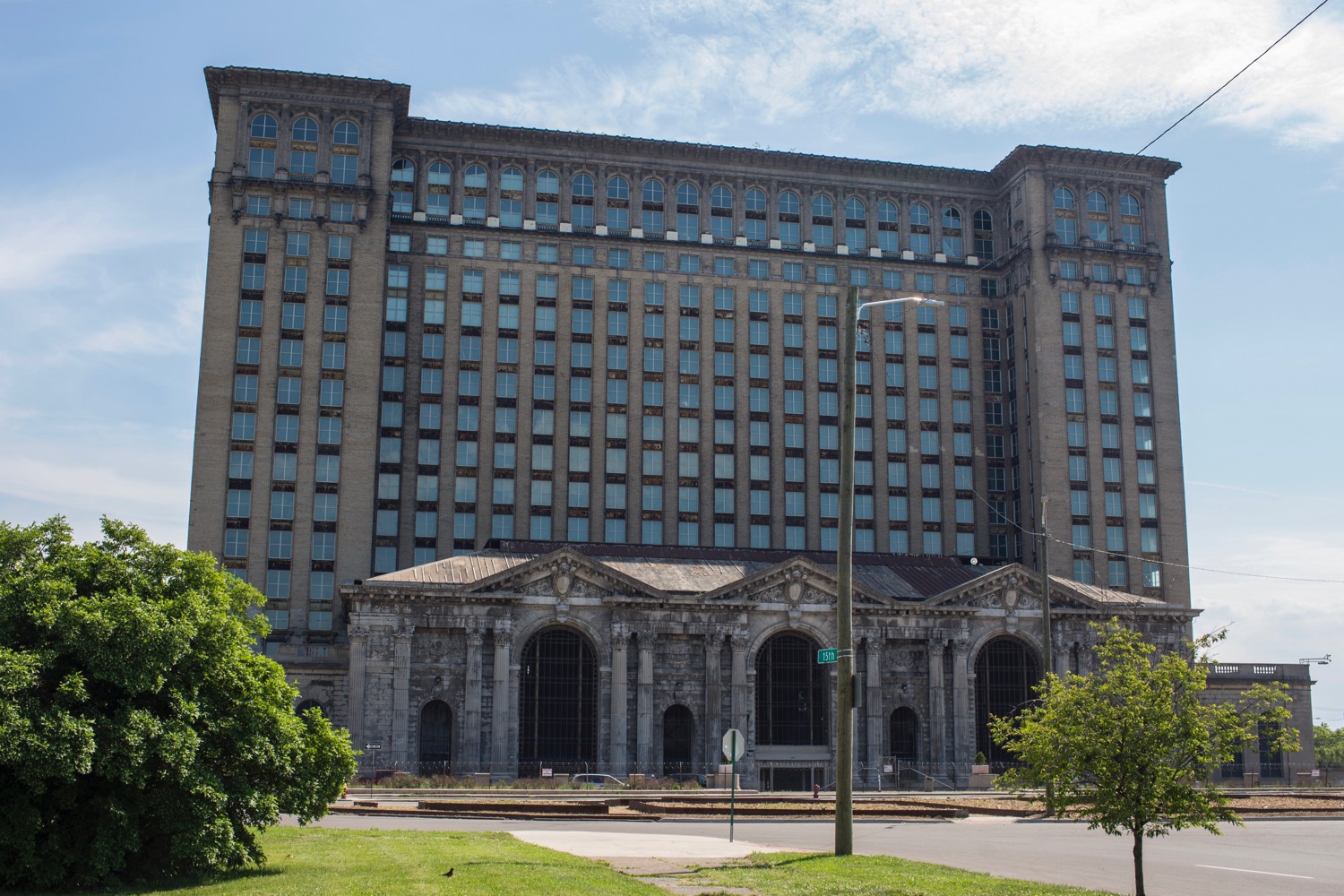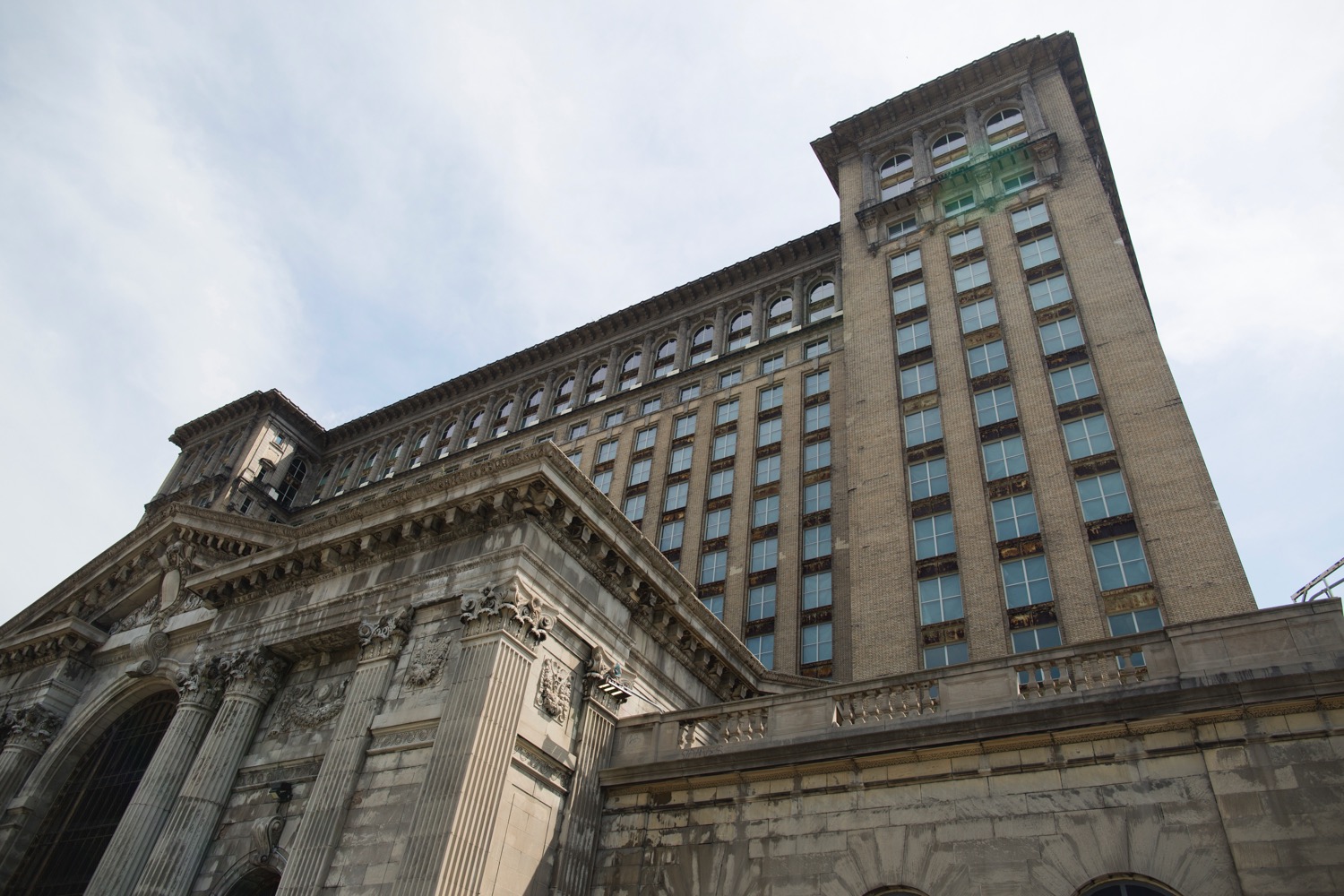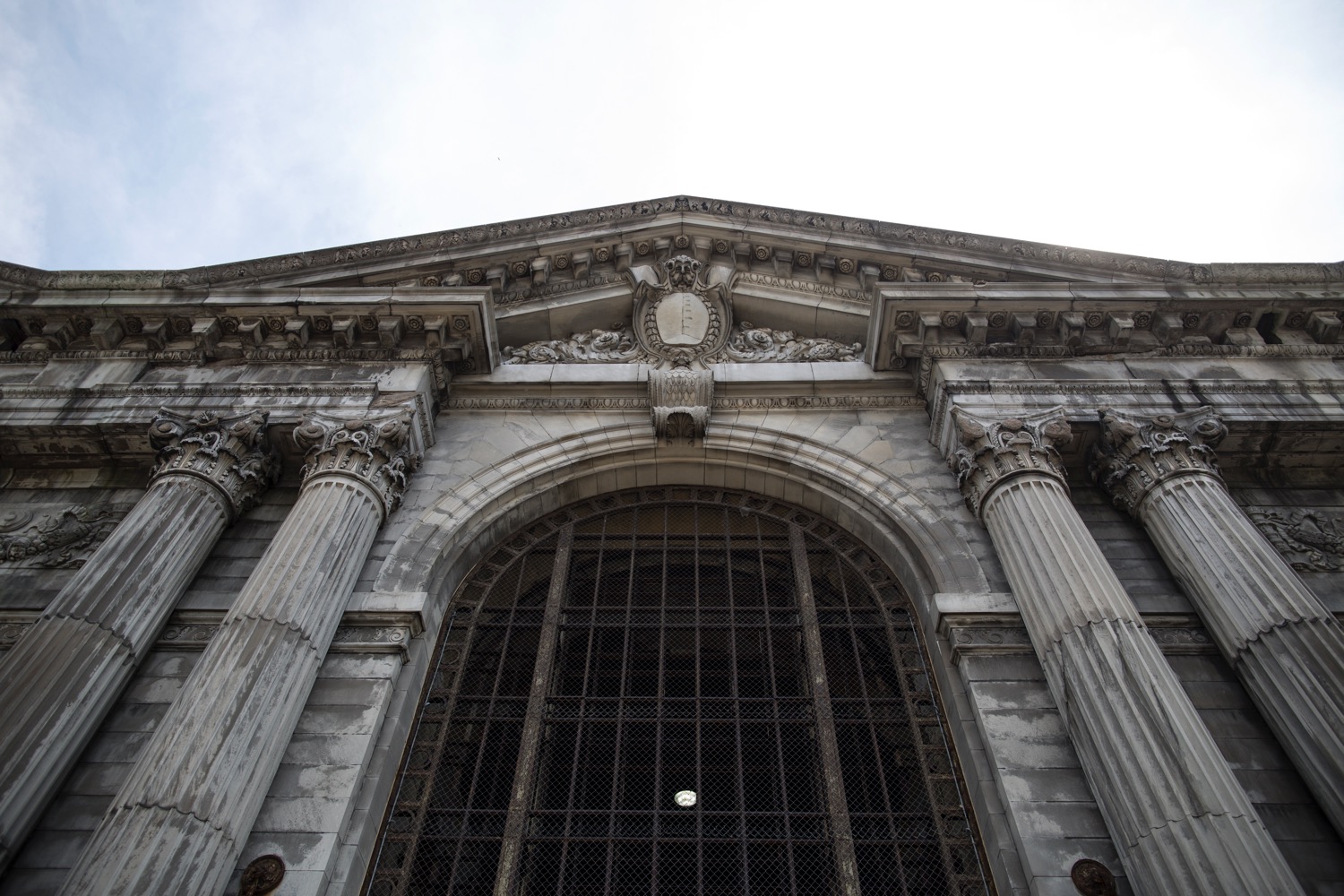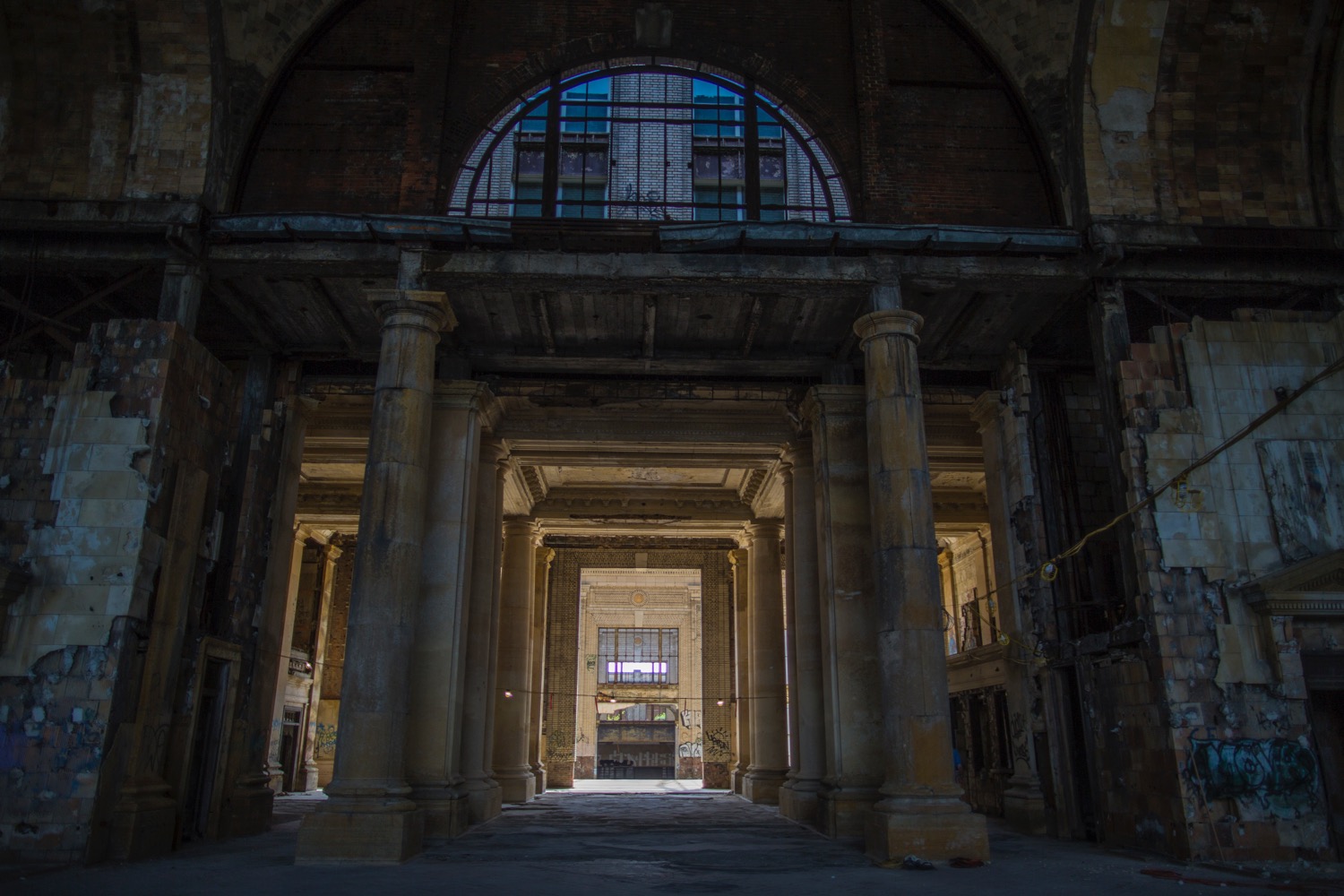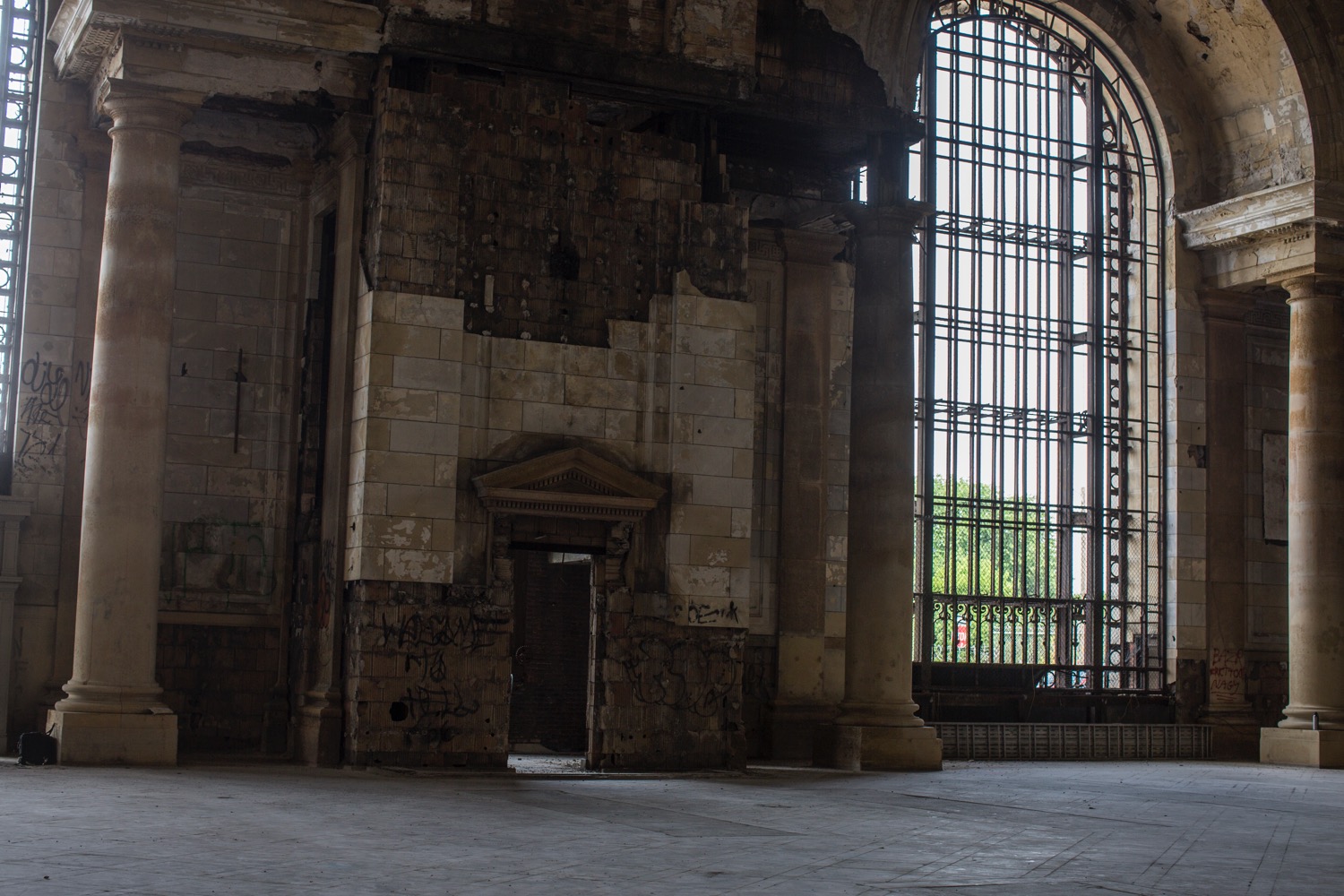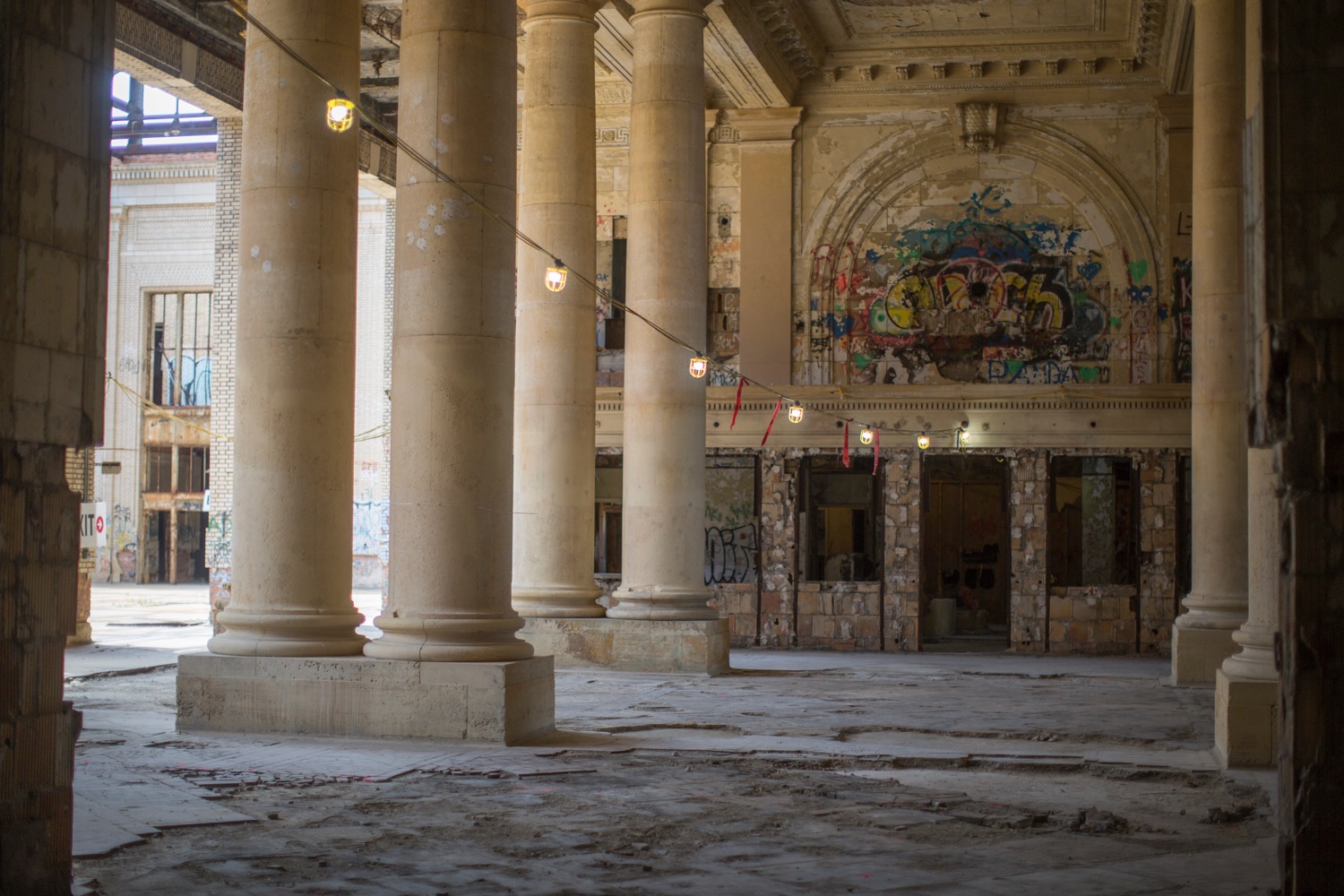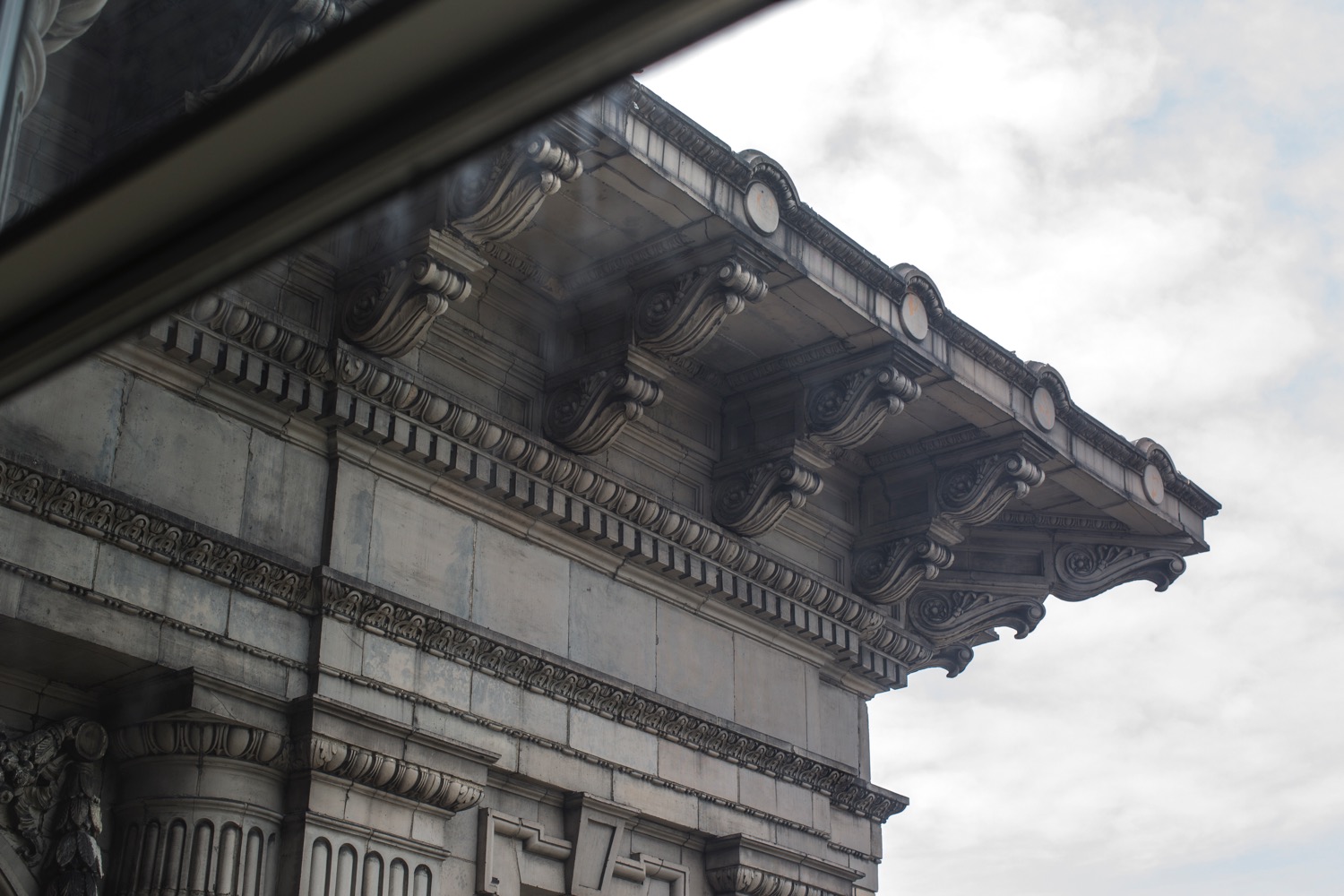Detroit’s Michigan Central Station has become a symbol of the Motor City’s decline. Since the last Amtrak train left on January 6, 1988, the massive station has sat abandoned, its neglected state reflecting that of downtown Detroit itself. But now Ford has acquired the complex, and plans to make it the center of a new downtown campus that will focus on development of autonomous and electric vehicles, as well as mobility services.
Over the next three to four years, Ford plans to redevelop the station to include workspaces, residences, and commercial spaces for retail business and restaurants. The renovated station will anchor Ford’s redevelopment efforts in the surrounding Corktown neighborhood, which will house the automaker’s electric and autonomous driving teams. In order to attract top talent, Ford plans to partner with local businesses and startups to make Corktown an attractive place to live.
“Michigan Central Station is a place that in many ways tells the story of Detroit over the past century,” Bill Ford, the company’s executive chairman and great grandson of founder Henry Ford, said in a statement. “We at Ford want to help with the next chapter, working together in Corktown with the best startups, the smartest talent, and the thinkers, engineers, and problem solvers who see things differently — all to shape the future of mobility and transportation.”
In addition to Michigan Central Station, Ford recently acquired the former Detroit Public Schools Book Depository, two acres of vacant land, the site of a former brass factory, and a refurbished former factory in Corktown. Ford expects to move 2,500 employees to the neighborhood by 2022, and has invested in enough space to accommodate 2,500 workers from partner companies. The automaker is also continuing renovations at its main campus in Dearborn, Michigan, located just outside Detroit, begun in 2016.
Michigan Central Station was designed by same architecture firm responsible for New York City’s iconic Grand Central Terminal. It opened in 1914 as the main Detroit passenger station of the Michigan Central Railroad, and served successor companies until Amtrak pulled out in 1988. With its 13-story office tower and 230-foot roof height, the station looms over the surrounding neighborhood. As it stood abandoned, it became a symbol of Detroit’s decline, as well as fodder for urban-exploring Instagram users.
Ford’s purchase of Michigan Central Station and its investments in the surrounding neighborhood make for a great feel-good story, but it will all be for nothing if the company’s ambitious tech plans fail.
Ford plans to put a self-driving car into production in 2021, and is planning a blitz of new electric cars and hybrids. It also wants to create a “Transportation Mobility Cloud” that will manage transactions between different types of mobility services. The teams working on these projects will all be based in Corktown, and they will all face major challenges in achieving their goals.
Editors' Recommendations
- Ford and VW close down Argo AI autonomous car unit
- Watch Ford and Bosch demonstrate automated valet parking system
- 2021 Ford Mustang Mach-E will offer Active Drive Assist hands-free driving tech
- Ford delays the launch of its robocar services by a year
- Ford’s self-driving car testing program heads to Austin
